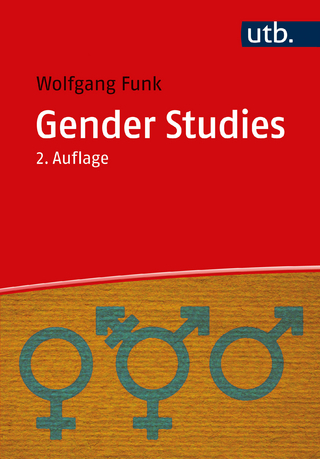
Performance All the Way Down
University of Chicago Press (Verlag)
978-0-226-77175-5 (ISBN)
The idea that gender is a performance—a tenet of queer feminist theory since the nineties—has spread from college classrooms to popular culture. This transformative concept has sparked reappraisals of social expectations as well as debate over not just gender, but sex: what it is, what it means, and how we know it. Most scientific and biomedical research over the past seventy years has assumed and reinforced a binary concept of biological sex, though some scientists point out that male and female are just two outcomes in a world rich in sexual diversity.
In Performance All the Way Down, MacArthur Fellow and Pulitzer Prize finalist Richard O. Prum brings feminist thought into conversation with biology, arguing that the sexual binary is not essential to human genes, chromosomes, or embryos. Our genomes are not blueprints, algorithms, or recipes for the physical representation of our individual sexual essences or fates. In accessible language, Prum shows that when we look closely at the science, we see that gene expression is a material action in the world, a performance through which the individual regulates and achieves its own becoming. A fertilized zygote matures into an organism with tissues and organs, neurological control, immune defenses, psychological mechanisms, and gender and sexual behavior through a performative continuum. This complex hierarchy of self-enactment reflects the evolved agency of individual genes, molecules, cells, and tissues.
Rejecting the notion of an intractable divide between the humanities and the sciences, Prum proves that the contributions of queer and feminist theorists can help scientists understand the human body in new ways, yielding key insights into genetics, developmental biology, physiology. Sure to inspire discussion, Performance All the Way Down is a book about biology for feminists, a book about feminist theory for biologists, and a book for anyone curious about how our sexual bodies grow.
Richard O. Prum is the William Robertson Coe Professor of Ornithology at Yale University, and the head curator of vertebrate zoology at the Yale Peabody Museum. He is the author of The Evolution of Beauty: How Darwin’s Forgotten Theory of Mate Choice Shapes the Animal World—and Us, one of the New York Times’s “10 Best Books of 2017” and a finalist for the 2018 Pulitzer Prize in General Nonfiction.
List of Illustrations
Prologue Taking Birds Seriously A Humanistic Turn
An Ornithologist for Intersectionality
1. Performance All the Way Down Material Feminisms
A Performative Continuum
What Is the Role of Metaphor in Biology?
What Is at Stake?
The Stakes for Evolutionary Biology
Mind the Gap
Why Queer Biology?
Where Are We Going?
2. Critical Concepts What Are Male and Female?
Historical Ontology
Sex Is a History
Sex Difference versus Sexual Difference
Sex and Race
Sexual Development and Differentiation
The Sexual Phenotype
Sex Determination and Sex Reversal
Discourse
Agency
Queer and Queering
3. Gender Performativity What Is Performativity?
Elements of Performativity
Performativity and Trans Experience
Between Butler and Barad
4. The Enactment of the Biological Self Genes and Development
What Is Molecular Discourse?
Want to Go to the Movies on Friday?
How Discourse Becomes Genetic Action within Cells
The Choreography of Gene Expression
The Performative Phenotypic Landscape
Canonical versus Performative Pathways
How Does the Body Regulate Growth over Space?
What Is the Role of Physical Forces in Development?
Performativity of Cellular Discourse
Are Genes Causes?
Agency in Developmental Biology
Citationality and Homology
Posthuman Power
Physiology and Immunity
Neurobiology and Psychology
Sexual Selection
What Is Not Performative in Biology?
Why Performative Biology Now?
5. How Do Our Sexual Bodies Develop? The Role of Chromosomes
On Gene Nomenclature
How Do Gonads Differentiate?
Reproductive Tract Development
Genital Development
Post-embryonic Sexual Development
Sexual Development Summary
6. Variations in Our Sexual Development Terminology and the Framing of Embodied Sexual Variation
Moving beyond Pathology
Chromosomal Contributions to Differences in Sexual Development
Genetic Variations in Gonad Development
X Chromosome Inactivation
Genital and Reproductive Tract Development
Noncoding Genetic Variation
How Does the Environment Affect Sexual Development?
Queer Science
7. How Evolution Generates Sexual Variability The Evolution of Sex
Evolutionary Variability of Sexual Development Initiation
Why Sexual Differentiation Mechanisms Are Generatively Queering
Sexually Disruptive Selection
Evolution of the Molecular Discourse of Sexual Development
Evolution of Sexual Transition
Evolution Is Incompatible with Sexual Essences
Norms and Innovation
Placental Performativity
Limits of the Binary Bottleneck
8. The Future of Performative Biology Performative Scientific Hypotheses
Performativity of Illness and Disability
Recalibrating Causality
Biology Is Ready to Think Performatively
Pluralism and the Phenotype
What Is Evolutionary Biology About?
9. Performance All the Way Up Sexual Reproduction Is an Intra-action
A Posthuman Genealogy of Performative Discourse
Is There Gender in Nature?
“What Is Sex?” Revisited
Toward a Scientific/Cultural Concept of Gender/Sex
Performative Perspectives on Transsexual Experience
Sex and Race as Scientific Apparatuses
Sex and Race Categories in Biomedical Research
Post-disciplinary Material Feminisms
An Intellectually Queer Space in Science
Acknowledgments
Appendixes Appendix 1. Material Feminisms
Appendix 2. Acquired Immunity
Appendix 3. Current Models of the Genotype-Phenotype Relationship
Appendix 4. Modularity
Appendix 5. Genetic Assimilation
Appendix 6. Why Gene-Level Selection Is Insufficient
Appendix 7. Internal Selection Notes
Bibliography
Index
| Erscheinungsdatum | 12.10.2023 |
|---|---|
| Reihe/Serie | science.culture |
| Zusatzinfo | 16 halftones |
| Sprache | englisch |
| Maße | 152 x 229 mm |
| Gewicht | 680 g |
| Themenwelt | Naturwissenschaften ► Biologie |
| Sozialwissenschaften ► Soziologie ► Gender Studies | |
| ISBN-10 | 0-226-77175-X / 022677175X |
| ISBN-13 | 978-0-226-77175-5 / 9780226771755 |
| Zustand | Neuware |
| Haben Sie eine Frage zum Produkt? |
aus dem Bereich


